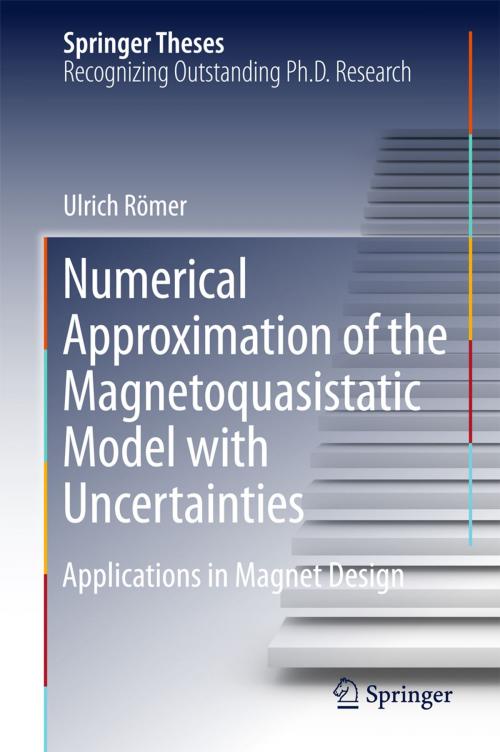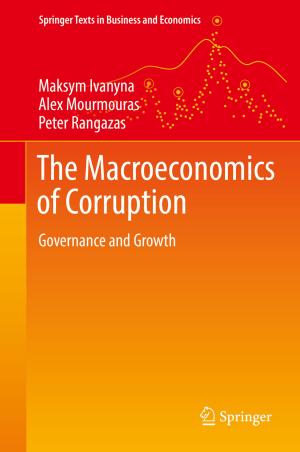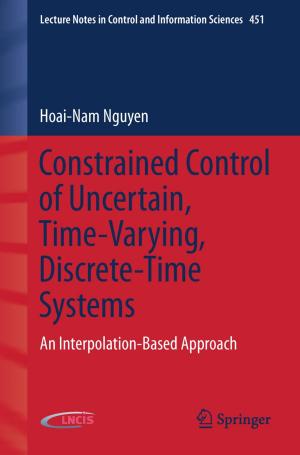Numerical Approximation of the Magnetoquasistatic Model with Uncertainties
Applications in Magnet Design
Nonfiction, Science & Nature, Technology, Microwaves, Science, Physics, Mechanics| Author: | Ulrich Römer | ISBN: | 9783319412948 |
| Publisher: | Springer International Publishing | Publication: | July 27, 2016 |
| Imprint: | Springer | Language: | English |
| Author: | Ulrich Römer |
| ISBN: | 9783319412948 |
| Publisher: | Springer International Publishing |
| Publication: | July 27, 2016 |
| Imprint: | Springer |
| Language: | English |
This book presents a comprehensive mathematical approach for solving stochastic magnetic field problems. It discusses variability in material properties and geometry, with an emphasis on the preservation of structural physical and mathematical properties. It especially addresses uncertainties in the computer simulation of magnetic fields originating from the manufacturing process. Uncertainties are quantified by approximating a stochastic reformulation of the governing partial differential equation, demonstrating how statistics of physical quantities of interest, such as Fourier harmonics in accelerator magnets, can be used to achieve robust designs. The book covers a number of key methods and results such as: a stochastic model of the geometry and material properties of magnetic devices based on measurement data; a detailed description of numerical algorithms based on sensitivities or on a higher-order collocation; an analysis of convergence and efficiency; and the application of the developed model and algorithms to uncertainty quantification in the complex magnet systems used in particle accelerators.
This book presents a comprehensive mathematical approach for solving stochastic magnetic field problems. It discusses variability in material properties and geometry, with an emphasis on the preservation of structural physical and mathematical properties. It especially addresses uncertainties in the computer simulation of magnetic fields originating from the manufacturing process. Uncertainties are quantified by approximating a stochastic reformulation of the governing partial differential equation, demonstrating how statistics of physical quantities of interest, such as Fourier harmonics in accelerator magnets, can be used to achieve robust designs. The book covers a number of key methods and results such as: a stochastic model of the geometry and material properties of magnetic devices based on measurement data; a detailed description of numerical algorithms based on sensitivities or on a higher-order collocation; an analysis of convergence and efficiency; and the application of the developed model and algorithms to uncertainty quantification in the complex magnet systems used in particle accelerators.















